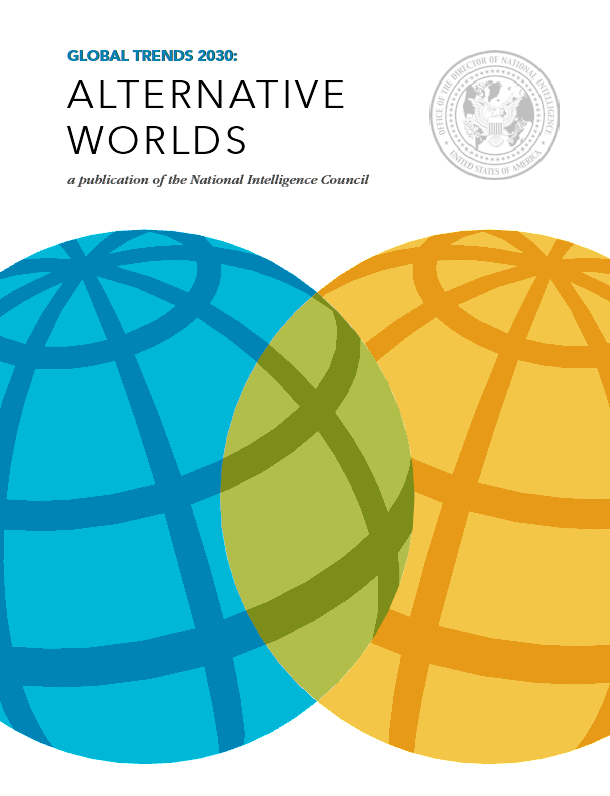The National Intelligence Council has just published one of its periodic forays into thinking about the future: Global Trends 2030: Alternative Worlds. As even the title suggests, the report is full of carefully qualified projections and scenarios, often noting the ambiguity of technological development—the truism that the same technology can produce both good and bad outcomes depending on how it is deployed. In its relatively brief thematic discussion of human augmentation, however, there is really nothing said about specific downsides of augmentation technologies beyond noting the likelihood of their inegalitarian distribution over the next 15-20 years, a problem which “may require regulation.” Instead, the passage closes with the sentence, “Moral and ethical challenges to human augmentation are inevitable.”
Apparently, while it is helpful to anticipate what enhancement technologies might allow in the future, there is nothing to be gained by trying to anticipate what the moral and ethical objections to them might be. Of course, it would be wrong not to acknowledge that such objections will exist, but it is hardly worthwhile to actually attempt to think about them.
This largely symbolic bow to ethics is common enough in such reports, perhaps only to be expected. It is one of those moments we have noted repeatedly at Futurisms, where the debate over human enhancement meets up with our culture’s democratic libertarianism and moral relativism. Plainly, we don’t think this outlook is a sound footing upon which to meet the undeniable challenges of the future.
Indeed, we are hardly short on reasons to think we ought to flee whenever possible from thinking seriously about moral distinctions, in the name of protecting autonomy or free choice. Our decades-long social experiment of eliminating “stigmas” and allowing people more and more to do their own things has contributed to the weakening and impoverishment of families and communities. Belief in what is now being called “
neurodiversity” has been a factor in making it harder to get the mentally ill the help they need. If the latest election is any indication, the progressives among us count it a boon when
one more casual method to escape from reality is legalized — presumably eventually to be used, like the others, to shore up precarious state finances.
Periodically, some tragic event reminds us of the cost of our laissez-faire morality, and an increasingly ritualized period of introspective mourning will commence, one which probably reflects less well on our ethical sensitivity than we might like to think, even though it serves its cathartic function and we soon return to our nonjudgmental business as usual.
And of course that business as usual is not so bad for those of us who are more of less insulated from its worst effects (even though no insulation is perfect) and therefore have the bourgeois luxury of arguing about the merits of human enhancement. But Global Trends notes as one of its “tectonic shifts” how “individuals and small groups will have greater access to lethal and disruptive technologies…enabling them to perpetuate large-scale violence — a capability formerly the monopoly of states.” Some of these disruptive technologies are of course directly related to human enhancement. Will we have the wherewithal to say “no” or “not you” before these technologies become lethal and disruptive? Why should we expect that, when our flabby moral judgments have so weakened out ability to respond to the ideas that make even some of our present technological capacities dangerous?
Although there is little sign of it prospectively, I would like to believe that eventually, the greater moral challenge will elicit greater moral effort. But recovering what that means will not be easy. It is no sure bet that we will suddenly find the moral strength to deal with powers over nature and ourselves yet greater than what we have now, particularly when those advocating on their behalf will have been complicit in keeping us weak.

Futurisms
December 18, 2012


